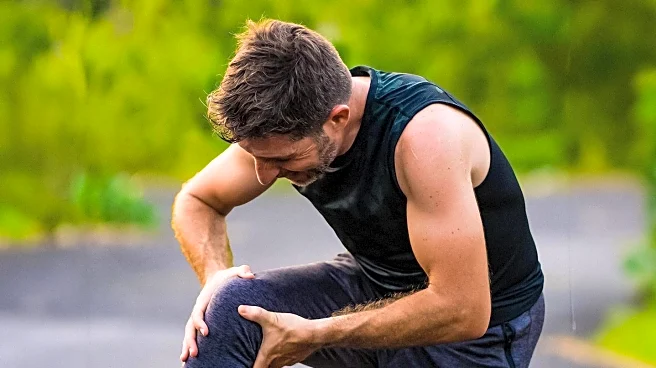What's Happening?
A recent study has found that altering one's walking gait can significantly reduce knee arthritis pain. Conducted by researchers at the University of Utah, the study involved training participants with mild to moderate osteoarthritis to adjust their toe positioning while walking. This adjustment helped redistribute the load on their knees, leading to pain relief comparable to over-the-counter medications. The study highlights the potential of personalized gait training as a non-invasive treatment for knee arthritis.
Why It's Important?
This study offers a promising alternative to traditional pain management methods for knee arthritis, which affects millions of Americans. By potentially reducing reliance on medications, which can have side effects, this approach could improve quality of life for many patients. The findings also suggest a shift towards more personalized and non-invasive treatment options in healthcare, emphasizing the importance of biomechanics in managing chronic conditions.
What's Next?
Further research is needed to refine this approach and make it widely available in clinical settings. The development of technology, such as 'smart shoes' or smartphone applications, could facilitate personalized gait training outside specialized labs. As the study progresses, it may lead to broader adoption of gait modification techniques in physical therapy and rehabilitation programs.









